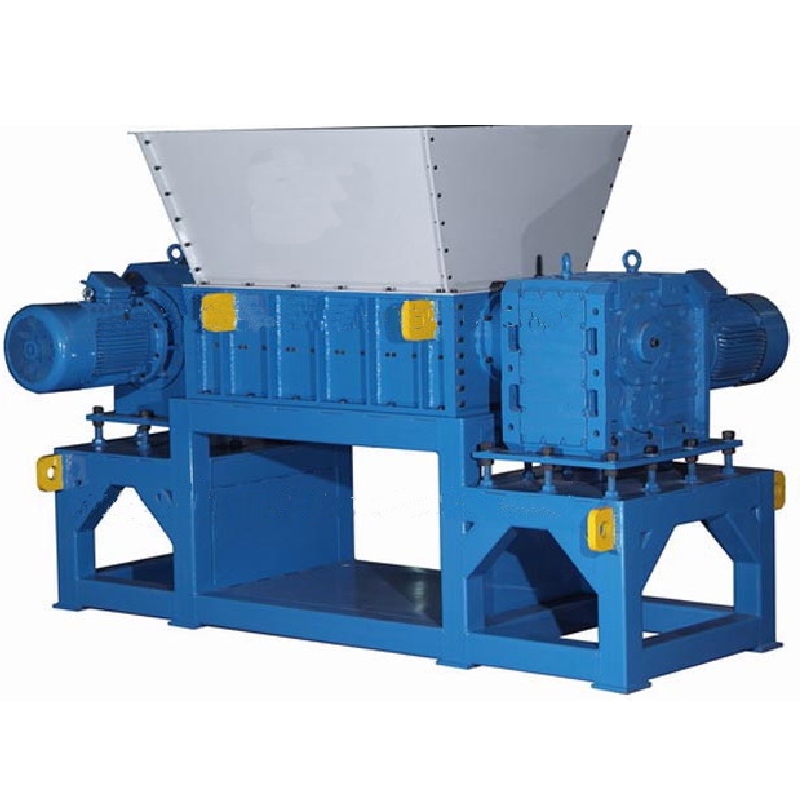

Dec . 09, 2024 14:54 Back to list
Understanding Municipal Solid Waste Twin Shaft Shredders
Municipal solid waste (MSW) management is a critical concern for many cities worldwide, as it directly impacts environmental sustainability and public health. Among the various technologies available for waste processing, twin shaft shredders have gained prominence for their efficiency and effectiveness in handling a diverse range of materials. This article explores the significance, functionality, and advantages of twin shaft shredders in the context of municipal solid waste management.
Understanding Municipal Solid Waste Twin Shaft Shredders
One of the primary advantages of twin shaft shredders is their versatility. They can handle a wide variety of materials, including organic waste, plastics, metals, paper, and even electronic waste. This ability to process different types of waste makes twin shaft shredders an invaluable asset in municipal solid waste facilities, allowing them to efficiently manage complex waste streams. By shredding materials into smaller sizes, these machines enable easier transportation and processing, ultimately leading to improved recycling rates and reduced landfill usage.

Efficiency is another critical factor that makes twin shaft shredders stand out in waste management. The dual-shaft design ensures that the waste is subjected to continuous cutting, reducing downtime during the shredding process. Furthermore, twin shaft shredders typically operate at lower speeds than some other shredding technologies, enabling effective size reduction while minimizing energy consumption and wear on the machinery. This operational efficiency translates into cost savings for municipalities and waste management operators, helping to make waste processing more economically viable.
The environmental benefits of using twin shaft shredders in municipal solid waste management are significant. By effectively reducing the volume of waste and facilitating recycling, these machines contribute to a decrease in the amount of waste sent to landfills. This is critical in mitigating the environmental impacts associated with landfilling, such as greenhouse gas emissions and soil and water contamination. In addition, shredding waste can help recover valuable materials that can be reintroduced into the production cycle, promoting a circular economy and reducing the need for virgin raw materials.
Moreover, twin shaft shredders enhance safety in waste management operations. By breaking down large and potentially hazardous materials into smaller pieces, they reduce the risk of accidents and injuries during subsequent handling and processing stages. This focus on safety is essential in ensuring a secure work environment for waste management personnel.
In conclusion, twin shaft shredders play a vital role in the effective management of municipal solid waste. Their ability to process diverse materials efficiently and promote recycling makes them an essential component of modern waste management systems. As cities continue to grapple with the challenges of waste disposal and environmental sustainability, the adoption of advanced technologies like twin shaft shredders is crucial for creating a cleaner, more sustainable future. By investing in such innovative solutions, municipalities can significantly reduce their environmental footprint and contribute to the well-being of their communities.
Latest news
Troubleshooting Common Eddy Separator Problems
NewsJul.04,2025
The Role of Metal Recycling Plants in Circular Economy
NewsJul.04,2025
The Impact of Recycling Line Pickers on Waste Management Costs
NewsJul.04,2025
Safety Features Every Metal Shredder Should Have
NewsJul.04,2025
How Industrial Shredders Improve Waste Management Systems
NewsJul.04,2025
How Cable Granulators Contribute to Sustainable Recycling
NewsJul.04,2025